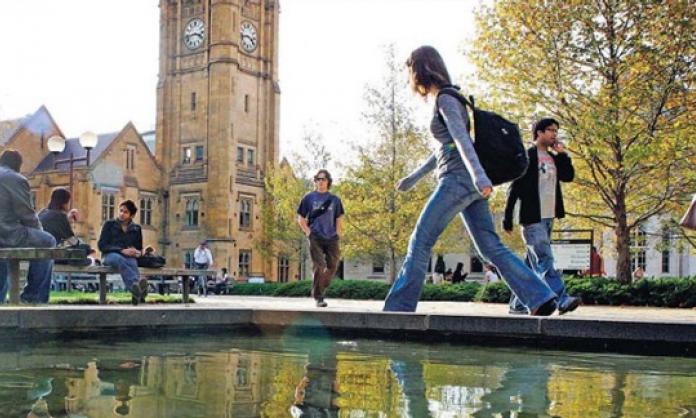Melbourne University is planning a fundamental restructuring of tertiary education delivery.
The Flexible Academic Program (FAP) – yet to be made public – is an enormous assault on education quality and job security.
The university wants to cut core elements of higher education. In-person lectures will be abolished, lectures instead recorded and accessed only online. Tutorials will be phased out and replaced with larger seminars, where more students will compete for access to teaching staff.
Substantial course cuts are on the agenda. Sections of the curriculum are to be merged in what the university calls a “streamlining” process.
The university also intends to shift from a semester to trimester or even quarterly term course structure. In its report, the university cites the experience of the University of New South Wales, which is currently moving to four 10-week terms. This almost doubles the period students will be required to be on campus. Such a change will put tertiary education beyond the means of many students who rely on their breaks to work extra shifts to cover the costs of the academic year.
On top of this, teaching hours will be extended. The university wants to abolish the current teaching period of 8am to 6.15pm, replacing it with an unbound teaching schedule. Achieving greater staff “flexibility” is a recurrent goal of the report that sets out the details of the FAP, and working more unsociable hours is only the beginning.
For staff, the report’s two key themes are “appropriate workforce categorisations” and “performance measurement and review”. References to staff “categorisations” hint at plans to increase the casualisation of university staff, with emphasis on employing more sessional and seasonal staff. Already, more than 50 percent of teaching and research academics in Australian universities are employed on a non-ongoing basis.
“Performance measurement” schemes will mean staff are subject to greater management scrutiny and under more pressure to compete with each other to meet research and publication targets.
None of this detail has been made public by the university, despite these changes being planned since at least August 2015. This is unsurprising. Melbourne University has a history of implementing vicious cuts that are kept hidden from staff and students until the last minute. In 2014, 540 workers were sacked, the biggest single job cut ever at an Australian university, with hardly a moment’s notice.
What we know about the FAP so far amounts to a major attack. Students will continue to accumulate debt while being offered a lower quality education. Young people from working class backgrounds will be further marginalised from Group of Eight institutions like Melbourne University.
This is all in step with the corporate logic that dominates our universities. Melbourne University records a revenue of more than $2 billion a year, $200 million of which is pure profit. Vice-chancellor Glyn Davis lives in a mansion on campus, rakes in $1.1 million a year, and hobnobs with the likes of Malcolm Turnbull and Chris Pyne. On 13 January, the Australian named him the most important figure in higher education.
If students are going to challenge this logic and stop the brutal cuts planned in the FAP, we have to begin to campaign immediately.
All are welcome to the next meeting of the Melbourne University Education Action Group, Monday 15 February 2.30pm in the Arts Lab in Union House. Like the Facebook page “Stop the FAP: No to cuts at Melbourne Uni” for more information.









